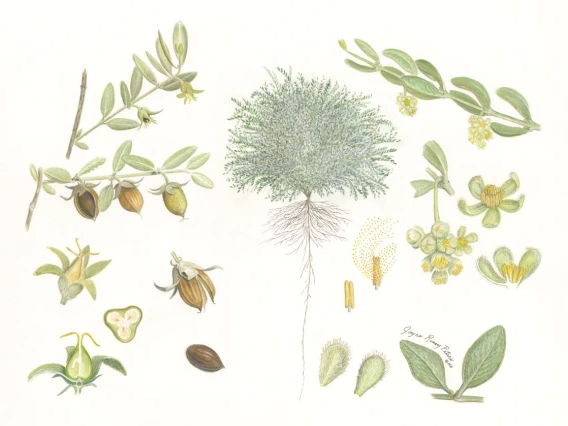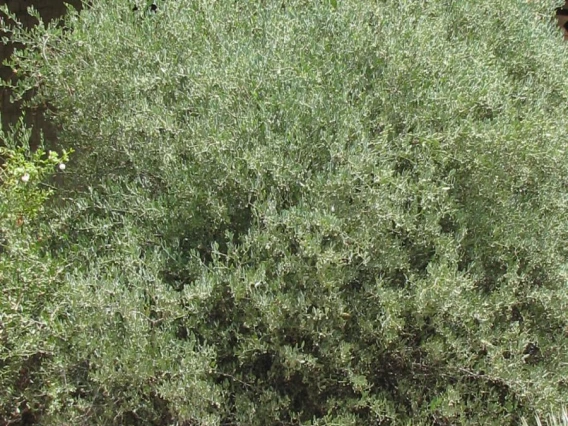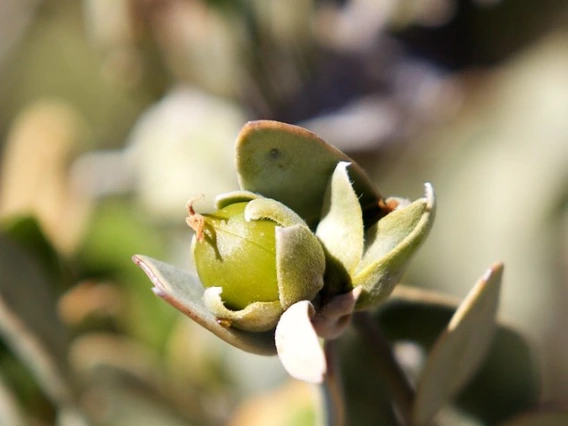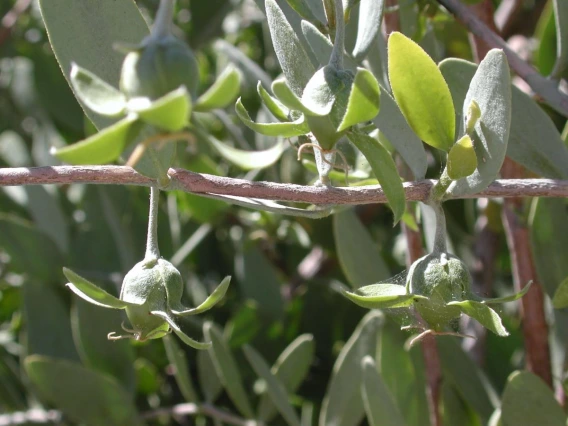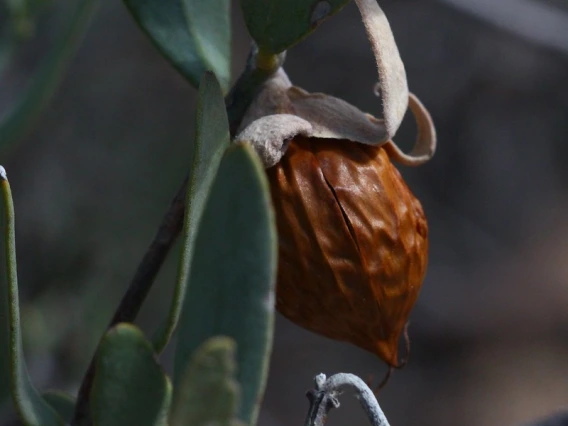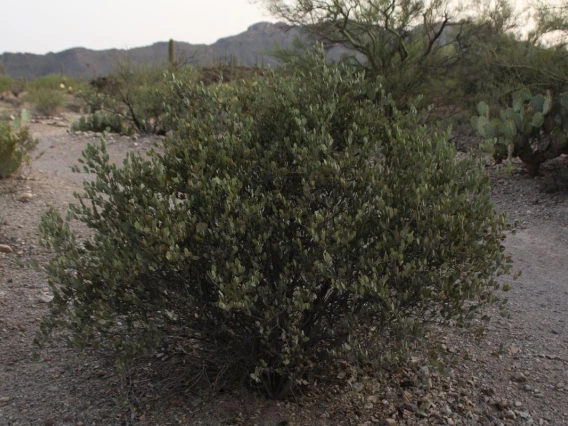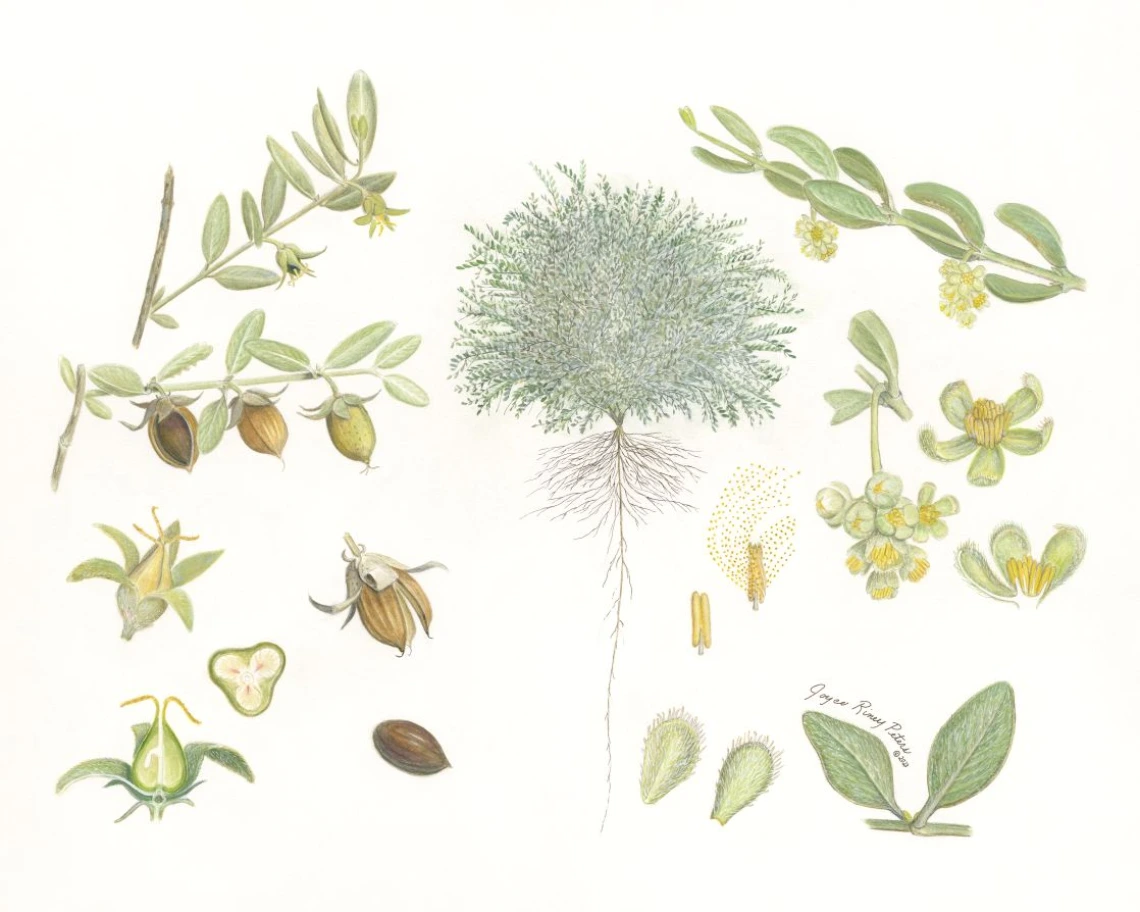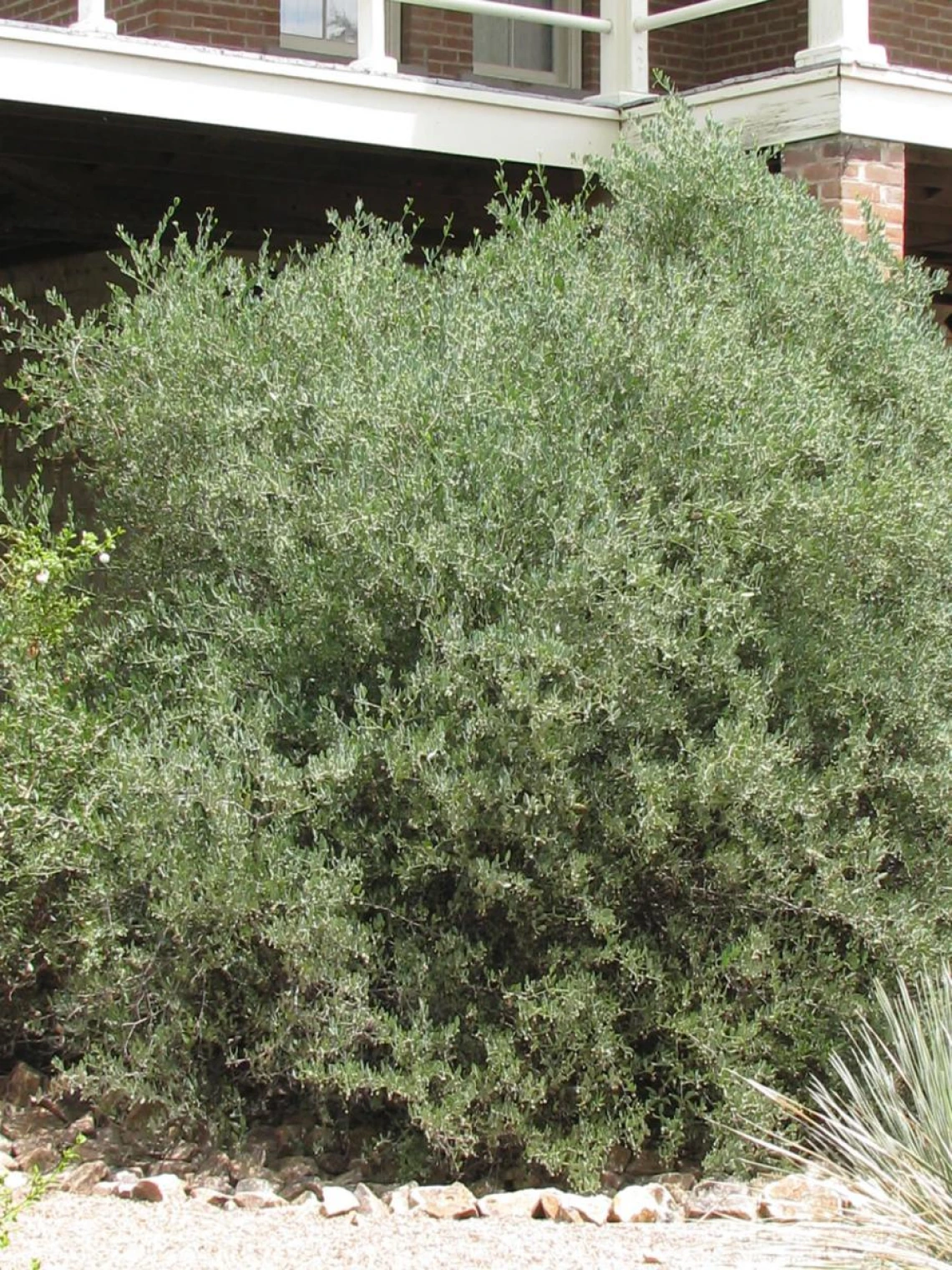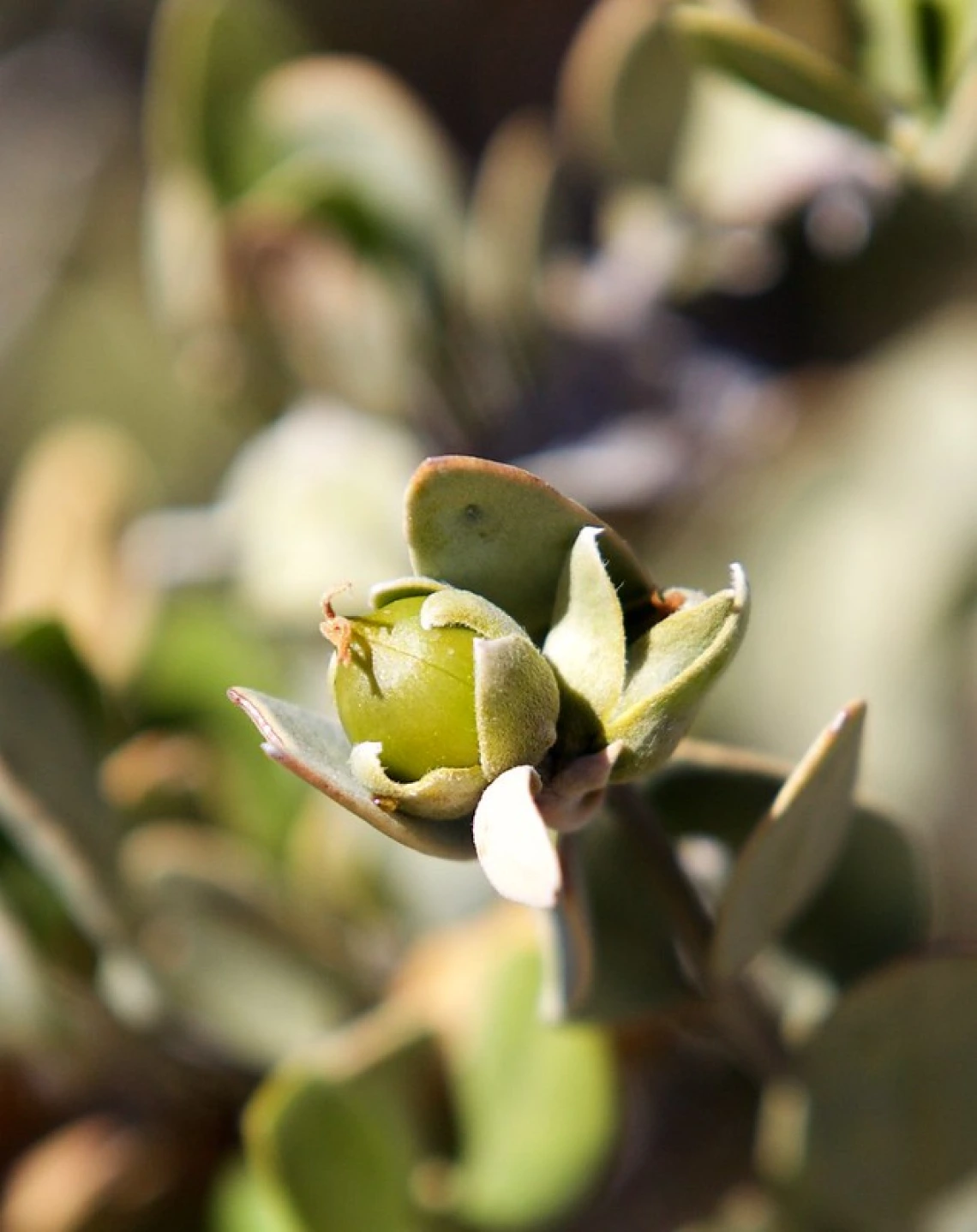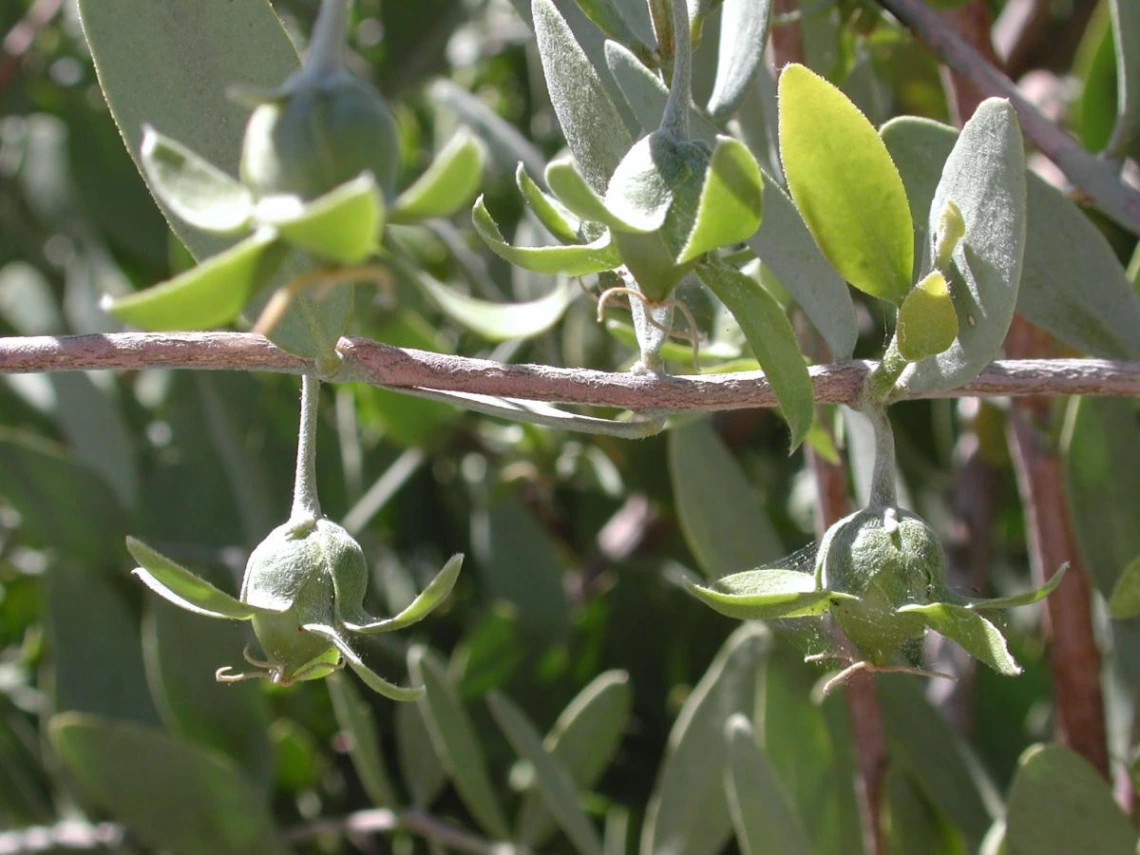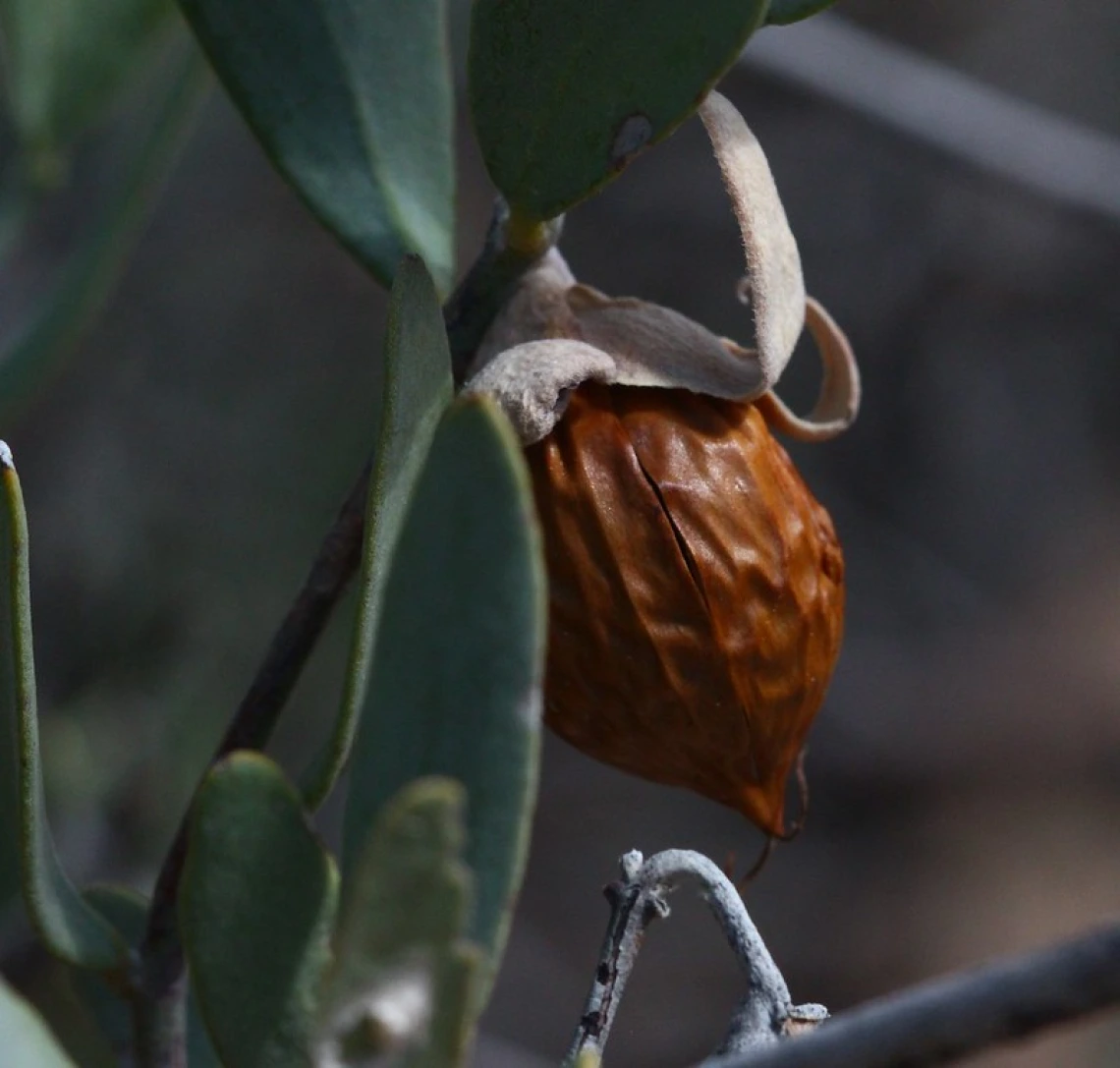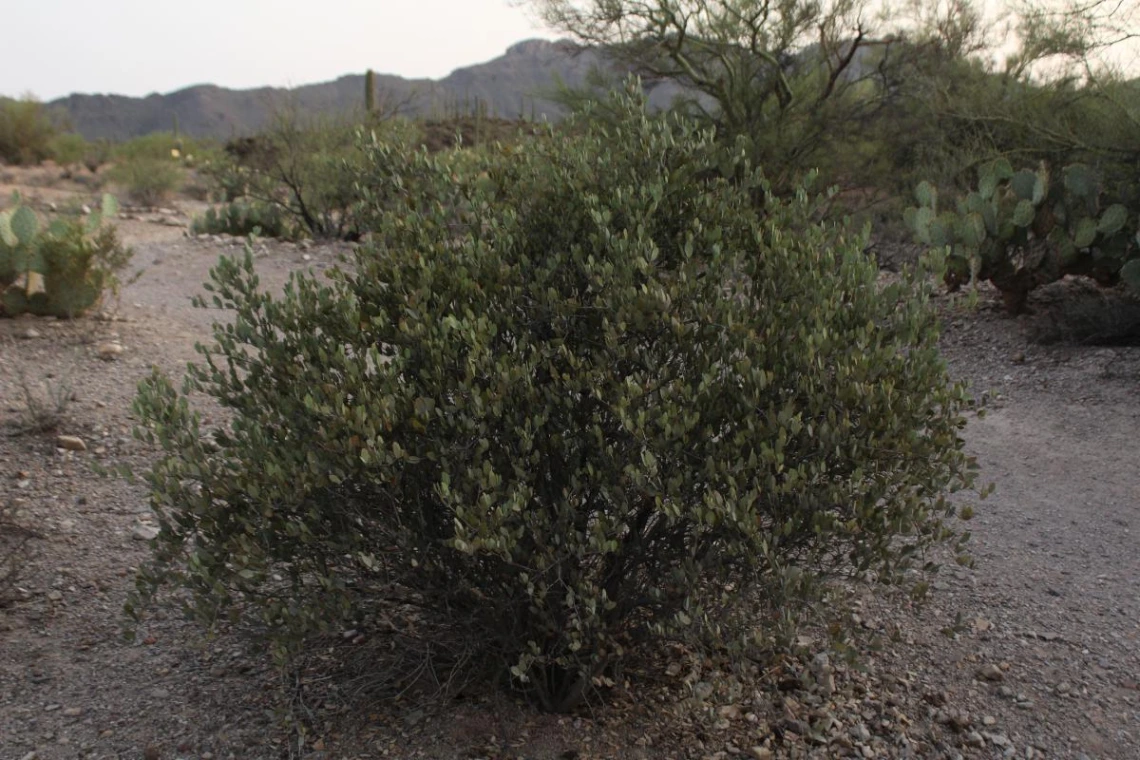Sonoran Native Plants Virtual Tour
Simmondsia chinensis | Simmondsiaceae | jojoba
Desert Ecology:
Jojoba is an evergreen, sometimes drought-deciduous dioecious shrub that flowers in winter and produces a nut-like fruit in early summer after being pollinated by wind or insects. To protect against pre-mature opening, the flower buds have a chilling requirement that ensures open after late winter rain. The plant serves as forage for desert wildlife (javelina, deer, livestock, bighorn sheep), and the nuts are eaten by rodents, squirrels, birds, rabbits.
Ethnobotany:
The fruit contains a fine oil (actually a wax) used in cosmetics including shampoo, perfume, lotions ans salves for skin problems and sores. The O’odham made a paste from the nut used as an antioxidant salve on burns . Natives also used it for a hair styling oil and as a tea for stomach problems and rheumatism. Though considered inedible, the seeds were used as a coffee substitute, or chewed raw to ease sore throat and child delivery. It maintains a high viscosity at high temps and does not get rancid like oils and is cultivated in Arizona due these characteristics and its many cosmetic, medicinal and industrial uses.


